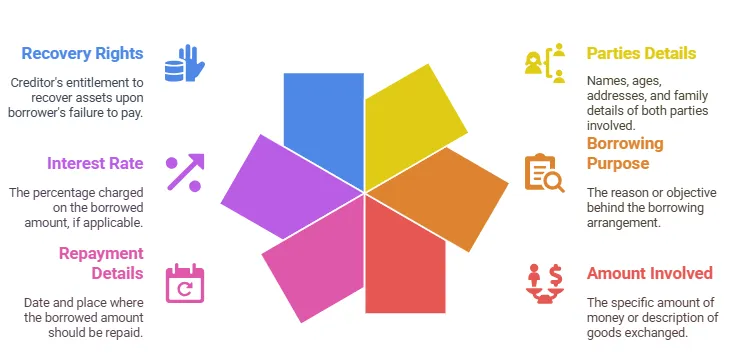-medium.webp)
Table of Contents
Lenden means borrowing and lending, “give‑and‑take” of money, goods, or services to be repaid later. Under Nepal’s Muluki Civil Code 2074, such transactions—both formal and informal—must occur through a legally binding deed to ensure enforceability and transparency.
What Is a Deed and Why Does It Matter
A deed is a written document (including a cheque, bill, voucher, or receipt) that records the transaction. Conducting a Lenden without an executed deed is illegal, and courts will typically not enforce such agreements.
Essential Details in a Deed
Every legally valid deed must include:

Interest Rules, Clear Limits
The Code strictly governs interest:
If a deed specifies interest, it must not exceed 10% per annum
If a deed mentions interest but not the rate, 10% annual interest applies by default
If no interest is specified, interest cannot be charged
Compound interest is prohibited; any such excess must be refunded or adjusted
Repayment Procedures: Documentation Is Key
Upon repayment:
The creditor must sign and return or cancel the deed, indicating repayment
If the original deed is lost, a receipt of payment must be provided
For partial repayment, annotate the deed with receipts and the borrower's acknowledgment
Validity Period of a Deed
Personal household deeds are valid up to 10 years. If payment or renewal occurs within that time, the term resets for another decade. Court judgments during this term can enforce judgment-phase interest.
Unenforceable Deals—Special Cases
Certain scenarios void enforceability:
Transactions with minors or mentally incapable persons are not legally recognized
If a deed lacks the family head’s signature, the creditor must first prove the debtor’s independent property rights before recovery
However, courts may still enforce lending evidenced by bank statements, vouchers, or negotiable instruments
No Statute of Limitations for Serious Infractions
There is no time limit (statute of limitations) for cases involving:
Attempts to exploit minors or incapacitated persons
Charging compound interest
Charging interest exceeding 10% per annum
What’s New in 2025
Recent legal guidance emphasizes:
Strict penalty and refund for compound interest or excess interest
Stronger court powers to enforce banking records and digital evidence for proving oral loan transactions
Integration with consumer protection laws, ensuring fair lending practices and borrower rights
Why This Matters in Nepal Today
With digital lending (mobile wallets, microfinance, fintech) and informal village loans increasing, these rules:
Protect borrowers from exploitative interest rates
Encourage formal documentation for all loans
Provide legal clarity on repayment and default procedures
Deter fraudulent lending through strict enforcement
Building Trust Through Legal Clarity
Nepal’s Lenden Kanoon establishes a clear, fair, and enforceable framework for borrowing and lending. By mandating written deeds, capping interest, and outlining strict repayment protocols, the law balances borrower protection and creditor rights, promoting financial integrity across both formal and informal lending practices.
Disclaimer:
This article is intended solely for informational purposes and should not be interpreted as legal advice, advertisement, solicitation, or personal communication from the firm or its members. Neither the firm nor its members assume any responsibility for actions taken based on the information contained herein.


